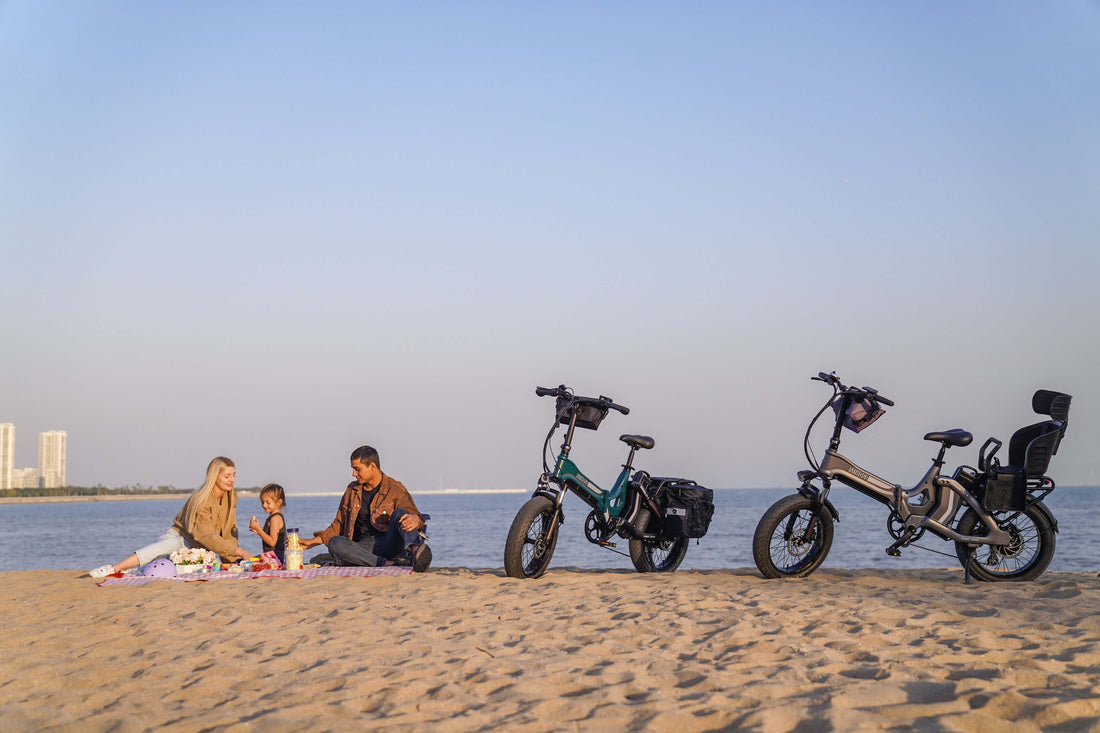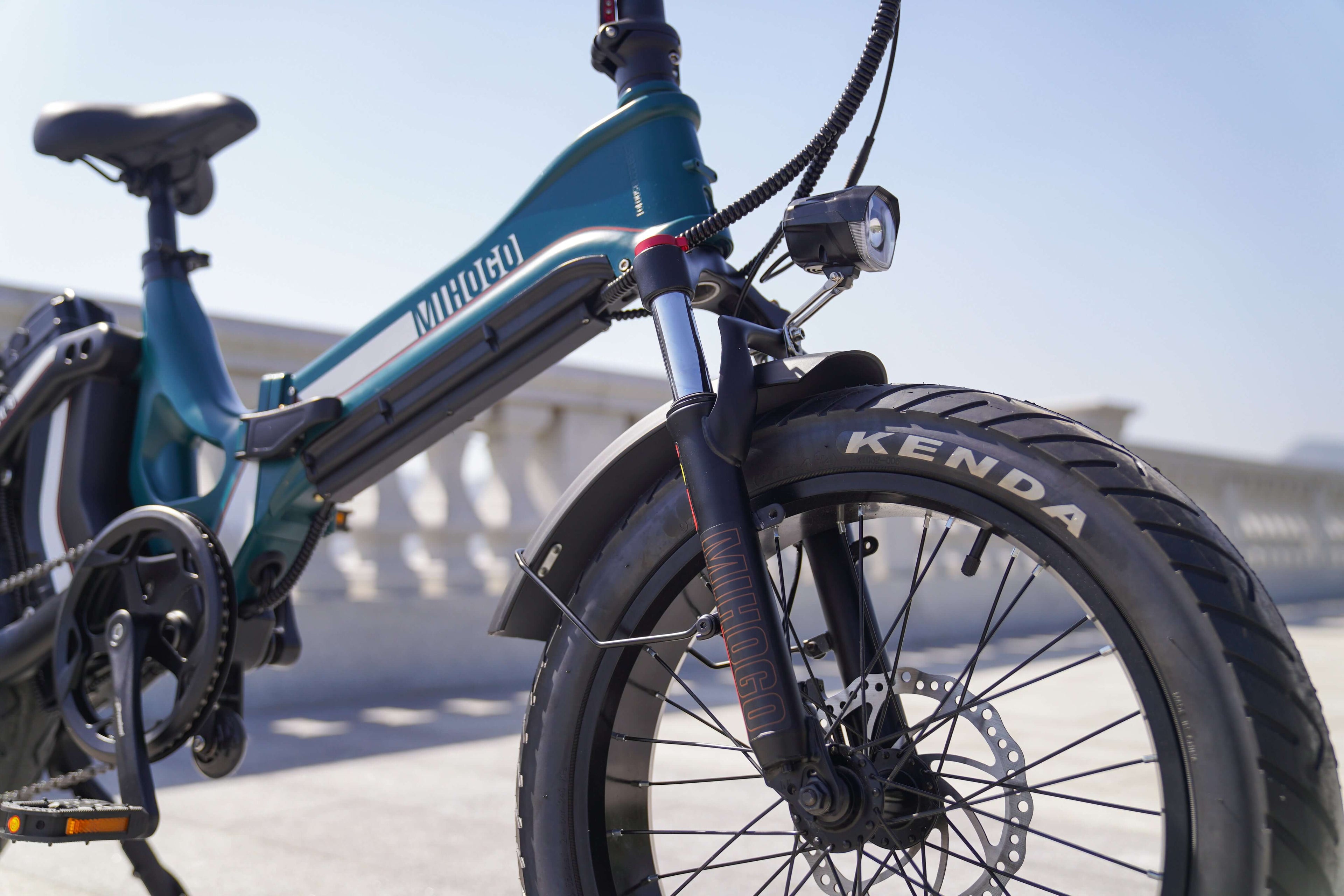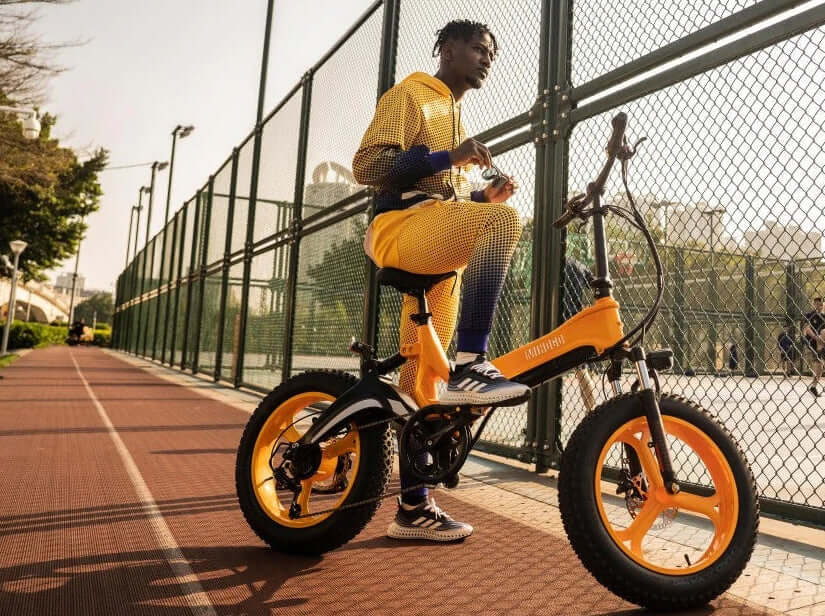The golden age of e-bike mountain pass touring has arrived in Europe. What once required elite-level fitness and years of training can now be conquered by weekend warriors armed with the right electric bike. From the cobblestone climbs of Austria's Grossglockner to the legendary switchbacks of Italy's Stelvio Pass, e-bikes are democratizing access to Europe's most spectacular mountain routes.
Why E-Bikes Are Perfect for Alpine Mountain Passes
The European e-bike market is projected to reach €15.6 billion in 2025, with over 10 million units sold annually. This explosive growth isn't just about urban commuting – it's about unlocking adventures that were previously beyond reach for most cyclists.
The Physical Reality of Mountain Pass Cycling
Traditional mountain pass cycling demands exceptional fitness. The Grossglockner alone requires conquering 1,754 vertical meters over 21.2km with an average gradient of 8.3%. Modern e-bikes enable riders to cover 50-80km daily with elevation gains of 1,200-1,700m, making multi-day Alpine adventures feasible for riders of moderate fitness levels.
Battery Technology Revolution
Next-generation batteries now offer 120km range and can charge in just 10 minutes. This technological leap means riders can tackle longer passes without range anxiety. Swiss-made e-bikes now achieve up to 100km battery life in eco mode, perfect for full-day mountain adventures.
Europe's Most Spectacular E-Bike Mountain Passes
1. Grossglockner High Alpine Road, Austria
The Crown Jewel of Alpine Cycling
The Grossglockner High Alpine Road features 36 hairpins and an ascent of over 2,500m, making it one of Europe's most challenging yet rewarding passes. This legendary route reaches 2,571 meters at the Edelweißspitze, offering breathtaking views of Austria's highest peak.
Why E-Bikes Excel Here:
- Sustained gradients of 8-10% over 20+ kilometers
- Cobblestone sections that demand consistent power
- Weather variability requiring reliable motor assistance
- Multiple photo stops without fatigue concerns
2. Stelvio Pass, Italy
48 Switchbacks of Pure Alpine Drama
The Stelvio Pass climbs to 2,758 meters with dramatic switchbacks that have challenged cyclists for generations. This pass features countless hairpin turns and steep gradients that perfectly showcase e-bike capabilities.
E-Bike Advantages:
- Consistent power delivery through tight hairpins
- Ability to maintain cadence on steep sections
- Reduced fatigue for safer descents
- Extended range for exploring connecting routes
3. Col du Galibier, France
Tour de France Legend
The Col du Galibier reaches 2,701 meters and represents one of cycling's most storied climbs. This mythical pass offers extraordinary views of two valleys and requires absolute dedication to conquer.
E-Bike Benefits:
- Tackle the Henri-Desgrange monument climb with confidence
- Maintain energy for the spectacular descent
- Handle variable weather conditions with consistent power
- Enjoy the scenery without exhaustion
Choosing the Right E-Bike for Mountain Pass Adventures
Essential Specifications for Alpine Cycling
Based on European mountain pass requirements, your e-bike needs:
Motor Power: Minimum 750W peak output for sustained climbs Battery Capacity: 48V system with 12.8Ah minimum capacity Range: 40-80 miles (64-128km) depending on terrain Weight: Under 25kg for manageable handling Braking: Hydraulic disc brakes for reliable stopping power
Advanced Features for Mountain Adventures
Torque Sensors: Dual-arm torque sensors provide a 23% boost in battery life compared to single sensor systems
Suspension Systems: Full suspension absorbs the constant vibrations of Alpine roads
Gear Systems: Shimano 7-speed systems enable smooth transitions on varying gradients
The Future of E-Bike Mountain Pass Tourism
Emerging Trends Shaping Alpine E-Biking
AI algorithms now adjust motor output based on terrain, rider weight, and riding style, offering 20% longer battery life. Fast charging technology allows 10-minute charging sessions, revolutionizing multi-day touring.
Sustainability and Alpine Tourism
E-bikes produce zero tailpipe emissions and zero PM 2.5 emissions, making them ideal for environmentally conscious Alpine tourism. By 2030, e-bikes are expected to account for 50% of all bicycle sales in Europe.
Planning Your Alpine E-Bike Adventure
Best Time to Ride
May-September: Peak season with dry trails and temperatures around 20°C (68°F)
June-September: High-altitude passes open after snow melts
July-August: Best weather but increased traffic
Essential Preparation
Physical Fitness: Ability to ride 4-6 hours daily for 4-6 consecutive days
Technical Skills: Confidence on gentle singletrack trails and steep flowing sections
Equipment: High-quality e-bike, spare battery, and safety gear
The Perfect E-Bike for Your Alpine Adventure
When selecting an e-bike for mountain pass touring, consider models with:
- Dual battery systems for extended range
- Integrated smart systems for ride monitoring
- Robust frame construction for Alpine conditions
- Professional-grade components for reliability
Conclusion: Your Alpine Adventure Awaits
E-bikes have transformed European mountain pass cycling from an elite pursuit to an accessible adventure. With proper preparation, the right equipment, and respect for Alpine conditions, riders of all levels can experience the magic of conquering Europe's most legendary passes.
The combination of advanced battery technology, powerful motors, and intelligent assistance systems means that routes like the Grossglockner, Stelvio Pass, and Col du Galibier are no longer reserved for professional cyclists. Your Alpine adventure is waiting – the only question is which pass you'll conquer first.
Ready to start your mountain pass adventure? Explore our range of high-performance e-bikes designed for Alpine touring at Mihogo.eu.
External Resources:






